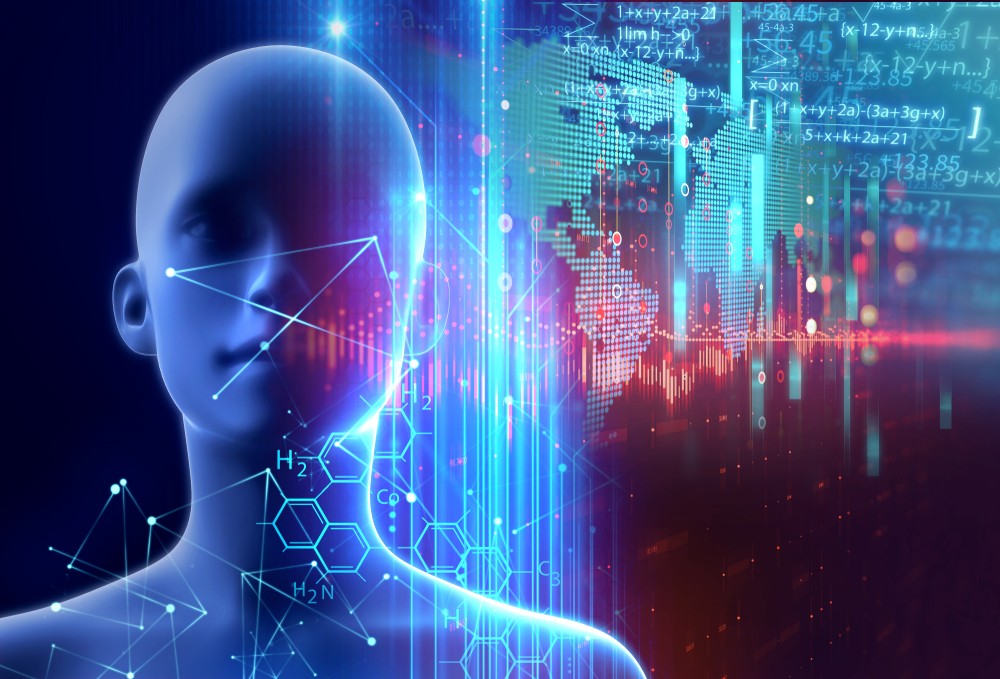Today, the relationship between humans and VAs is fairly simplistic, relying on basic voice commands like “Alexa, tell me the weather in London.” However, the artificial intelligence (AI) and machine learning that underpin the VA market is developing at pace. As a result, the VA will be far more than just a voice or chat-bot interface in the near future. In fact, VAs are likely to become a pervasive form of intelligence across the workplace that can surface through all digital platforms and resources, including data and apps, helping individuals to accomplish their daily tasks more efficiently.
Such innovation will undoubtedly trigger some concerns over the technology’s impact on job security and the demand for skills. But we believe VAs will make work a better experience for everyone. Workers will always face certain limitations due to our personal capacity for work or mental processing power, for example. VAs can help people and organisations to do and achieve things they couldn’t otherwise.
Eventually, we envisage the creation of a level playing field between workers and their VA, built upon a relationship of mutual trust and collaboration. In this scenario, the VA will undertake more routine tasks for the individual, allowing them to focus on delivering their best and most meaningful work.
Here is how we see the VA market evolving.
Acquiring “intelligence”
The natural-language processing of voice recognition technology is growing steadily in sophistication. Eventually, we believe conversations between an individual and their VA will be peer-to-peer, indistinguishable from human-to-human conversations.
Beyond this, the next logical step is for VA technology to have the ability to understand human gestures – and this isn’t as far into the future as one might assume. We’re already exploring the potential of gesture-recognition technology in all its forms, which will enable VAs to interpret priorities and passion points, for example by identifying when human gestures - such as pointing, eye gaze, and arm movement - have become more animated.
Deep learning will also be critical. The VA will be designed to observe people and their decision-making process so that they can assimilate it and apply this learning and intelligence to wide-ranging business scenarios.
Problem solving and prioritisation
Before long, the VA will begin to independently solve problems and make proactive suggestions for workers. It will have the ability to calculate an individual’s workload, perhaps suggesting when to take a break, as well as underlining the tasks that should be prioritised or delegated. By this point, workers may come to appreciate that the VA might even know “best” based on growing experience. Equally, tasks that involve the analysis of high volumes of complex data sets will logically be handed over to the VA and its advanced processing power.
Ultimately, VAs will help an individual to organise their work or tasks to keep them productive, while also understanding their personal capabilities. The VA may also begin to take on some monotonous, repetitive tasks to assist workers further, allowing them to spend more time engaged in high-level thinking, creativity and decision-making, making it possible to focus on the best, more interesting work, most of the time.
A personal assistant for everyone
What if every knowledge worker had an executive assistant who could help them to find the resources or files they need quickly, be where they need to be, and take care of more repetitive tasks for them? This is the route VA technology is heading down. If humans can begin to view the VA as something that augments their existing job role for the better, there’s huge potential for a relationship of trust and cooperation to eventually grow between the human and VA.
It will be important to ensure that the benefits and value the VA delivers are communicated back to the individual regularly, particularly as the technology becomes more sophisticated and the scenarios more complex. With this information, humans may be willing to let the VA assist more.
How organisations adapt
Currently, there is much discourse around the impact of “thinking machines.” In this context, VAs could take on human tasks and change the skills that organisations are looking for in people. This undoubtedly creates anxieties about the future, and the potential for certain human roles to be made redundant. But it is important that organisations adapt for the future now and consider the impact VA and other machine-learning technologies will have on the workforce, in all its complexities.
Ultimately, people will always be the ones in control of how VA technology is designed and used. Humans will never be replaceable, and technology will always be defined by humans. Let us focus on adjusting to a new reality, where human potential is amplified through collaboration with “intelligent” machines, and their time is freed up for more strategic, meaningful work.
906 words




